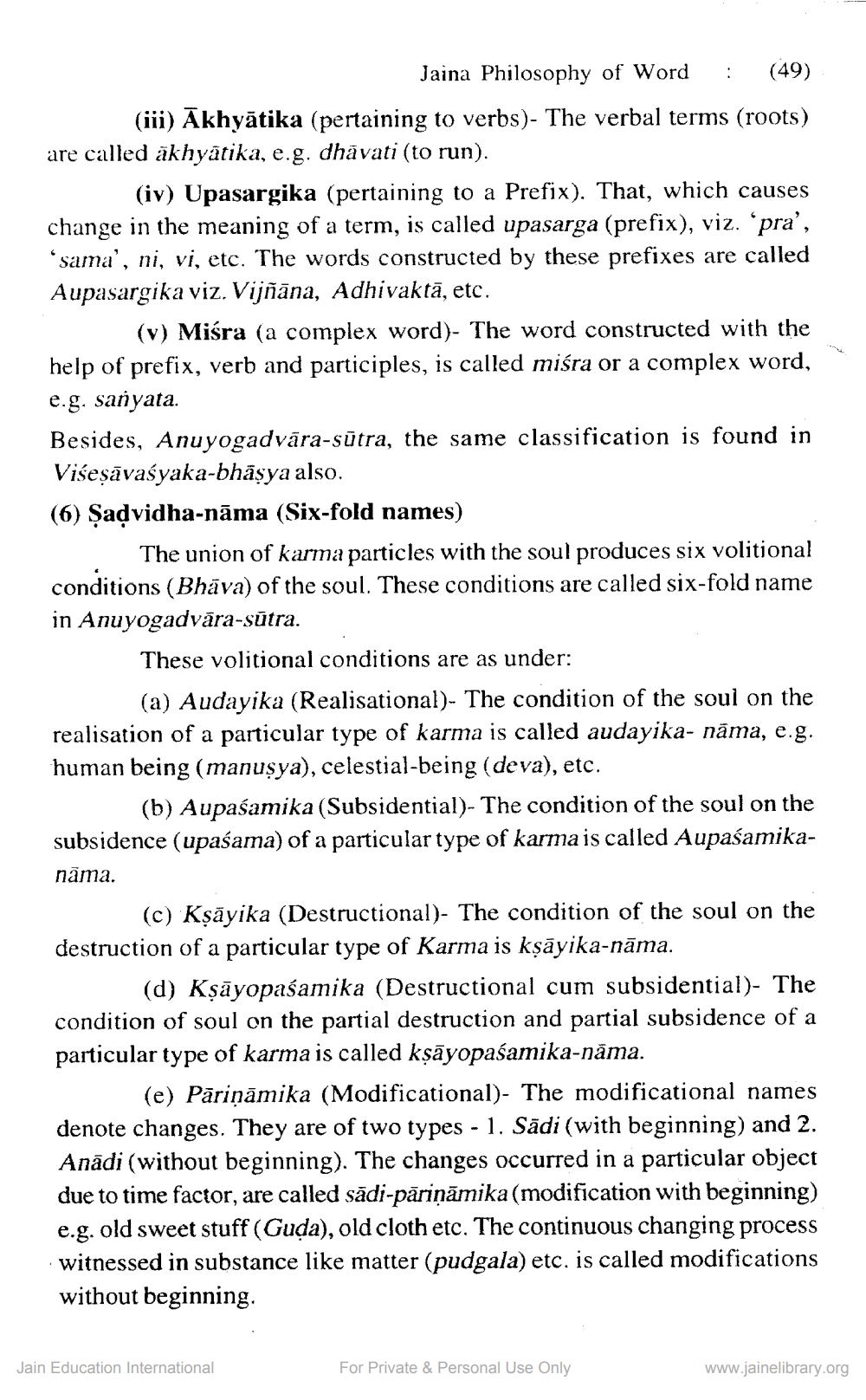________________
Jaina Philosophy of Word : (49) (iii) Ākhyātika (pertaining to verbs)- The verbal terms (roots) are called ākhyātika, e.g. dhāvati (to run).
(iv) Upasargika (pertaining to a Prefix). That, which causes change in the meaning of a term, is called upasarga (prefix), viz. ‘pra',
sama', ni, vi, etc. The words constructed by these prefixes are called Aupasargika viz. Vijñāna, Adhivaktā, etc.
(v) Miśra (a complex word)- The word constructed with the help of prefix, verb and participles, is called miśra or a complex word, e.g. sanyata. Besides, Anuyogadvāra-sūtra, the same classification is found in Viseșāvasyaka-bhāşya also. (6) Şadvidha-nāma (Six-fold names)
The union of karma particles with the soul produces six volitional conditions (Bhāva) of the soul. These conditions are called six-fold name in Anuyogadvāra-sūtra.
These volitional conditions are as under:
(a) Audayika (Realisational). The condition of the soul on the realisation of a particular type of karma is called audayika- nāma, e.g. human being (manusya), celestial-being (deva), etc.
(b) Aupaśamika (Subsidential)- The condition of the soul on the subsidence (upaśama) of a particular type of karma is called Aupaśamikanāma.
(c) Kṣāyika (Destructional)- The condition of the soul on the destruction of a particular type of Karma is kṣāyika-nāma.
(d) Kṣāyopaśamika (Destructional cum subsidential)- The condition of soul on the partial destruction and partial subsidence of a particular type of karma is called kṣāyopaśamika-nāma.
(e) Pāriņāmika (Modificational)- The modificational names denote changes. They are of two types - 1. Sādi (with beginning) and 2. Anādi (without beginning). The changes occurred in a particular object due to time factor, are called sādi-pāriņāmika (modification with beginning) e.g. old sweet stuff (Guda), old cloth etc. The continuous changing process witnessed in substance like matter (pudgala) etc. is called modifications without beginning
Jain Education International
For Private & Personal Use Only
www.jainelibrary.org




